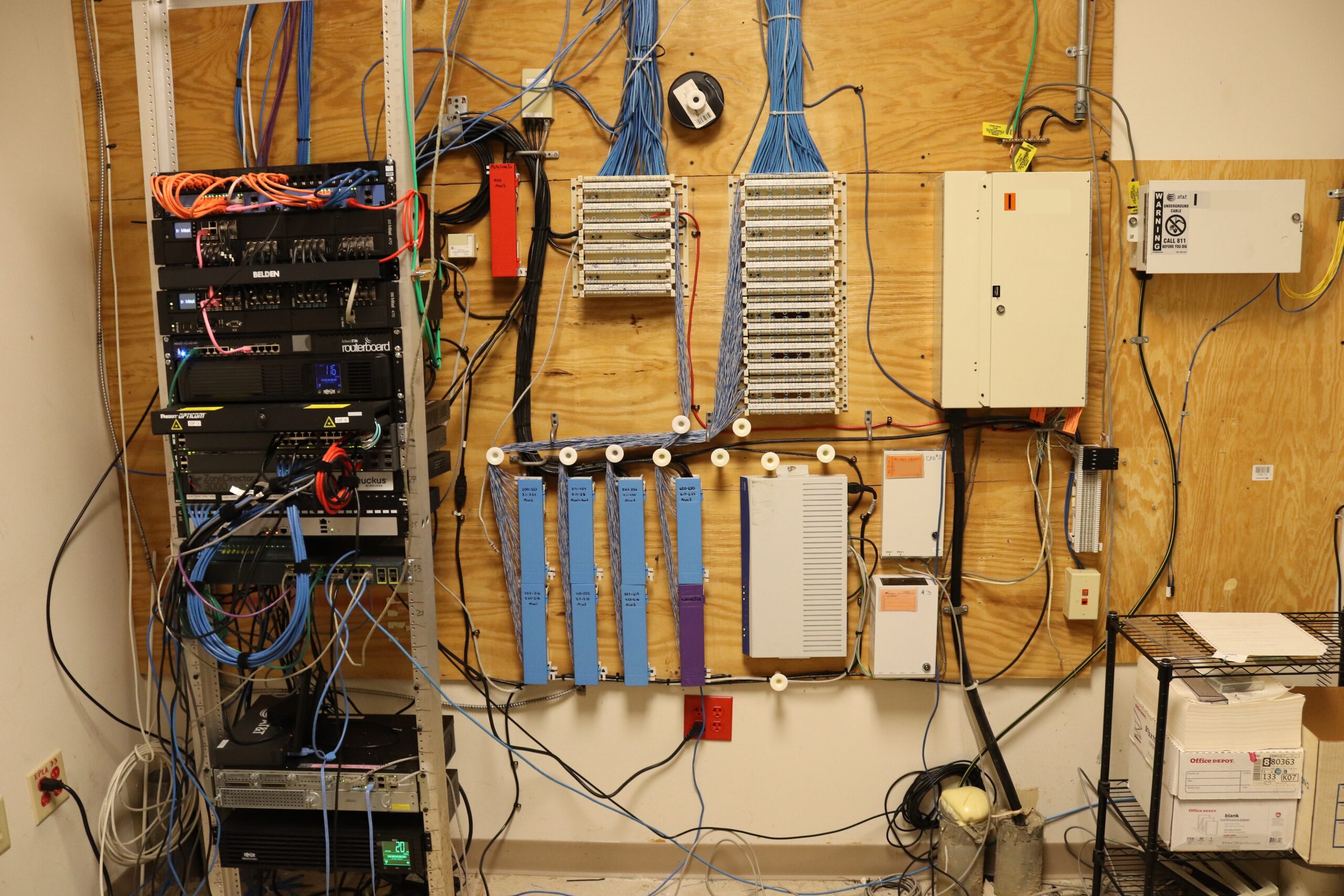Hotel guests might not be familiar with the term “PBX” or know that it stands for “Private Branch eXchange,” but they rely on it every time they use their room phone to contact the front desk, order room service, or request a wake-up call.
While the use of room phones for outside calls has decreased, the hotel PBX remains essential for delivering a superior guest experience. Whether you opt for a premise-based or hosted PBX system (we’ll dive into the differences below), your guests benefit from seamless access to vital services, including room service, wake-up calls, and emergency/E911 calling, the latter of which is required by federal law.
In today’s hospitality landscape, where staffing shortages are prevalent, with a 9% unemployment rate in the leisure and hospitality sector as of August, hotels must find ways to provide high-quality service with fewer staff members. A robust PBX system can automate guest services using features like Automated Attendant and Interactive Voice Response (IVR), reducing the need for direct staff interaction. As highlighted by Cedar Hospitality Partners CEO Antoine Berberi in a recent Hospitality.net article, outsourcing and leveraging technology are critical strategies for maintaining service levels while managing costs.
If you’re in the process of selecting or upgrading a PBX system for your hotel, here are key factors to consider.
Hosted PBX vs. Premise-Based PBX: Which One Suits Your Hotel?
When choosing a PBX system, the first decision is whether to go with a hosted (cloud-based) or premise-based solution. Both options provide seamless functionality, so your choice should be based on your hotel’s specific needs.
Cost Considerations:
- Premise-Based PBX: Typically, a premise-based PBX offers a lower total cost of ownership over time, especially as the system ages. These systems usually come with a one-year warranty, after which you can choose between extended warranties, software support, or a “Time & Materials” model, where you pay for service only when needed. This approach can be more cost-effective for long-term usage.
- Hosted PBX: Hosted PBXs require ongoing monthly fees that cover support and upgrades, ensuring your system always has the latest features. While this may involve higher upfront costs, the predictable monthly expenses can make budgeting easier.
Connectivity Options:
- A hosted PBX relies on the vendor’s SIP telecom services, while a premise-based PBX can use SIP services or traditional lines like PRI, T-1, or copper (“POTs”) trunks. SIP trunking is often preferred for its cost-effectiveness and flexibility, offering better value for most hotels.
Technology and Integration:
- Hosted PBXs offer superior integration with modern and future applications, making them ideal for hotels planning to incorporate multiple technologies or manage several properties. However, if you’re looking for a stable, long-term solution, a premise-based PBX may provide the best value, particularly if you intend to keep the system for several years.
Choosing the Right PBX Provider
After deciding between a hosted or premise-based PBX, the next step is to choose a provider that aligns with your hotel’s needs. Here are some key qualities to look for:
Key Qualities:
- Listening and Understanding: Your provider should listen to your needs, understand your priorities, and offer tailored solutions that align with your hotel’s operational goals.
- Support for Legacy Systems: Providers who support older, legacy PBXs can offer short-term solutions that maximize your existing equipment’s lifespan, ensuring a smooth transition when upgrading systems.
- Strong Partnerships: Ensure your provider has partnerships with leading hospitality PBX and voice technology brands like Avaya, Mitel, NEC, and Nortel, ensuring access to reliable service and support.
- Flexibility: Your chosen provider should offer both premise-based and hosted PBX options, understanding that the hospitality industry has unique needs compared to other sectors.
- Reliability: Investigate what failover options are available in case of system outages. A reliable PBX system is critical to maintaining guest satisfaction and operational efficiency.
- Value: Look for a partner who can help you reduce communication costs and enhance resource productivity. An audit of your current systems can identify opportunities for cost savings and improvements.
- Integration: Make sure the PBX system integrates seamlessly with major Property Management Systems (PMS) such as Oracle, MSI, Galaxy, FOSSE, OnQ, and others. This ensures smooth operations and future compatibility if your PMS changes.
- Support: Choose a provider with a reputation for prompt, effective support, offering nationwide coverage with 24/7 availability, both remotely and on-site.
Additional Considerations for Maximizing Your PBX Investment
Beyond selecting the right PBX system and provider, consider how the system can integrate with other technologies and services to further enhance guest satisfaction and operational efficiency.
- Managed IT Services: Ensure your PBX integrates with managed IT services to provide a seamless technology experience for your guests. This can include Managed Wi-Fi, network security, and more.
- E911 Compliance: Ensure your PBX is fully compliant with E911 regulations, providing accurate location information to emergency services when needed. This is not only a legal requirement but a critical safety feature for your guests.
- Future-Proofing: Choose a PBX system that can grow with your hotel, supporting future expansions and new technologies. A scalable solution will save you from needing another upgrade in just a few years.
Learn More About Hotel PBX Solutions
To gain a deeper understanding of hotel PBX systems and improve communication and guest experience, start by exploring The Ultimate Guide to Excellent Hotel Phone Systems: Enhancing Communication and Guest Experience, which provides comprehensive insights into how these systems function and their benefits. Additionally, it’s important to understand the various types of phone lines available, such as LS, GS, T1, PRI, SIP, Cloud, and POTS. You can learn more about these in Understanding the Different Types of Phone Lines. Finally, ensure that your phone system installation meets top standards by reviewing How to Tell You Had a Great Phone System Installation, which covers key indicators of a successful setup.

